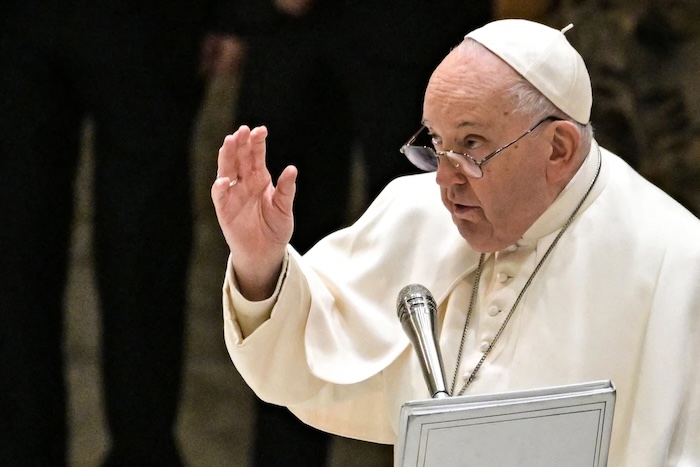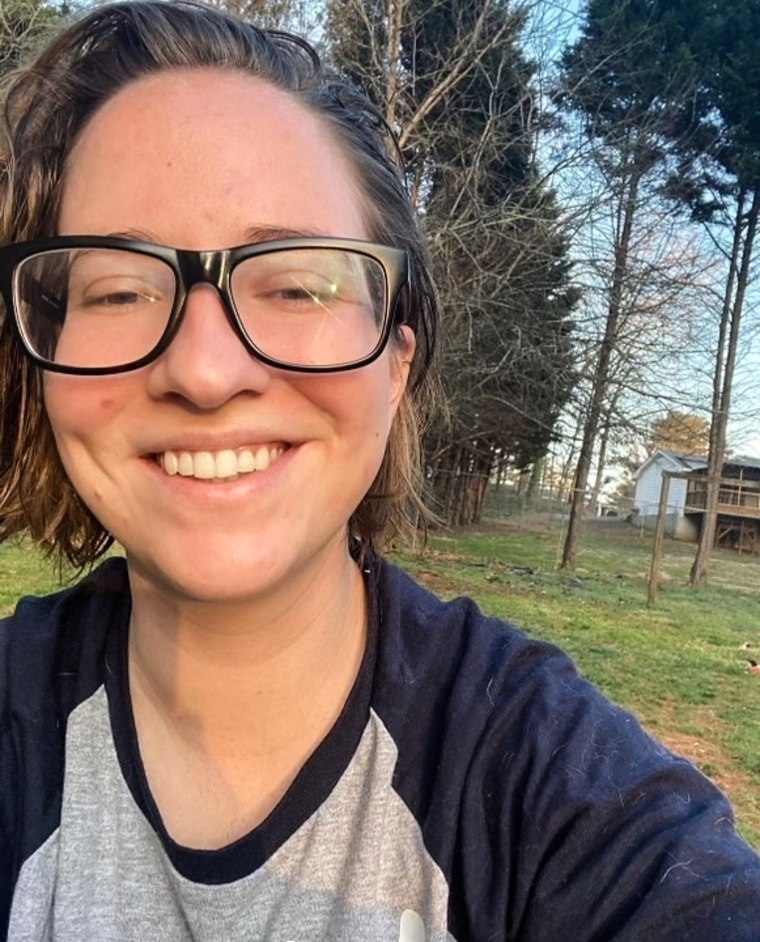— Pope Francis made a historic change to Vatican policy Monday, allowing priests to bless same-sex couples.

Greg Krajewski never misses Sunday Mass at his local Catholic church in Chicago. But even if he were to, it’s unclear if his fellow congregants would notice. As a gay man, he says he largely keeps to himself.
“People talk about the church being a place where people can come together, gather and be with each other,” he said. “That’s not what the church is for me, because it can’t be in many ways.”
But for the first time in his life, Krajewski, 34, has hope that could soon change.
Pope Francis made a historic change to Vatican policy Monday, allowing priests to bless same-sex couples. Some LGBTQ Catholics, including Krajweski, say the policy change may bring about a long-awaited healing to queer people who had faced the church’s decades of institutional rejection.
“Pope Francis is saying, ‘You belong here,’” Krajewski said. “‘No matter what you’ve been told, no matter what your quote-unquote sins are, you are wanted here.”
Marianne Duddy-Burke, executive director of DignityUSA, which advocates for LGBTQ rights within the Catholic Church, called the policy change “groundbreaking” for queer Catholics, and for straight and cisgender Catholics who have gay and transgender friends or family members.
“They will welcome this as a way of easing the tension that they may have felt for years between loving some important person in their life who’s in a relationship and church teachings that say that that’s less than God’s plan for humanity,” she said.
Kellen Flatt, 28, said Catholicism was at the center of her childhood, especially with her grandfather being a deacon at her local church in Marietta, Georgia, an Atlanta suburb. But as a teenager, she said, she struggled with Sunday school teachings that often equated being gay with sins such as murder or robbery.
“A lot of times, I would leave and go to the bathroom and do my best not to cry, because at this time my religion was very important to me,” Flatt, who is gay, said. “It felt like it was no longer a home for me.”

Flatt left the church almost a decade ago and hasn’t been to Mass since. But on Monday, following Francis’ announcement, she was open to the idea of returning for the first time, she said.
“I don’t know if this is going to be something that leads me to start going back to Mass every Sunday, but it is something that when I drive by the church, I’m no longer going to feel like that is a part of my past,” she said. “I’m going to feel like that is a door that’s open for me.”
Conversely, some LGBTQ Catholics say that the policy change does not go far enough and that, in turn, brings old hostilities and pain to the surface.
The new Vatican policy allows for priests to bless same-sex couples, but it stresses that priests may not bless same-sex relationships themselves. It also reaffirmed that marriage is a lifelong sacrament between a man and a woman, and that same-sex blessings should not be given during civil union ceremonies that could be perceived as a wedding.
Carl Hendy, who is nonbinary and uses they/them pronouns, said they were excited when they first saw the news about the policy change, but after reading through its details described it “a lousy attempt from the pope to validate queer people.”
“It just felt very performative,” said Hendy, 30, who left the church when they were about 18. “What I want to see from the Catholic Church is them taking accountability for how they’ve treated LGBTQ people historically and then promise to validate them unconditionally by recognizing their marriages, their relationships, their families, the same way they do heterosexual people.”
Acknowledging the remaining caveats, Duddy-Burke said the policy change is nonetheless a step in the right direction for LGBTQ Catholics.
“It’s not everything that we who are looking for full equality and full inclusion want, but it’s a milestone on the journey that I think we have to pause and recognize and use to propel the next push towards those goals,” she said.
Krajewski met his husband in 2011 and said his family has always disapproved of their relationship because of their faith. The pair was not invited to attend the weddings of Krajewski’s sisters, because his family members did not want to appear as though they were endorsing his relationship, he said.
But now, following the pope’s announcement, he said he is hopeful his family may be open to reconciliation.
“This document is something that the church is saying out loud that says: We’re affirming you two, we’re OK if you’re here, and we’re going to bless your presence and the goodness that comes out of your relationship,” Krajewski said. “That’s the first time that the church has come out that I can think of, and said very specifically, something is happening here that is good. That’s a big change.”
Monday’s announcement regarding blessings for same-sex couples is just the latest example of Francis’ embrace of the LGBTQ community since becoming pope more than a decade ago, and particularly within the last year.
In January, Francis described laws that criminalize homosexuality as “unjust” in an interview with The Associated Press. The pope met with an international coalition of LGBTQ Catholics, including Duddy-Burke, at the Vatican in October. And just last month, the pontiff signed off on a document that said trans people can be baptized and can be godparents and witnesses at religious weddings.
Complete Article ↪HERE↩!
